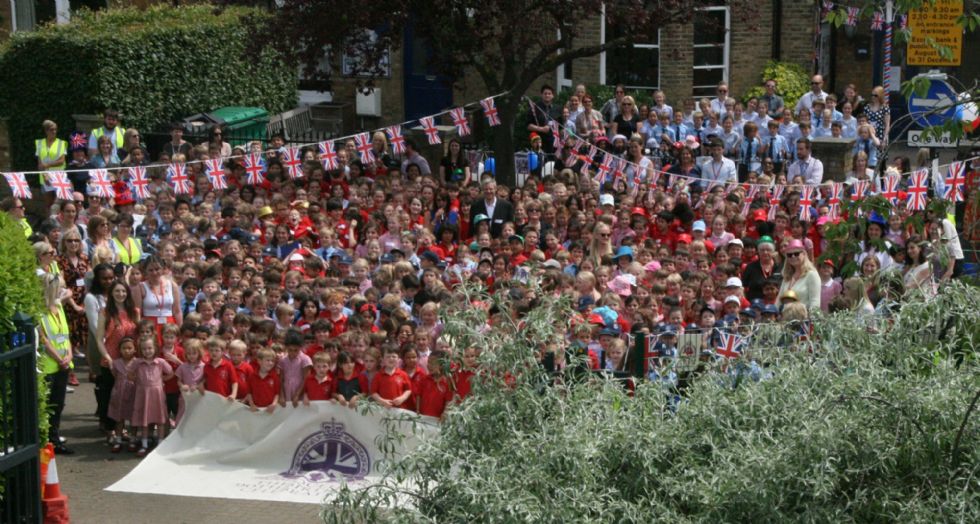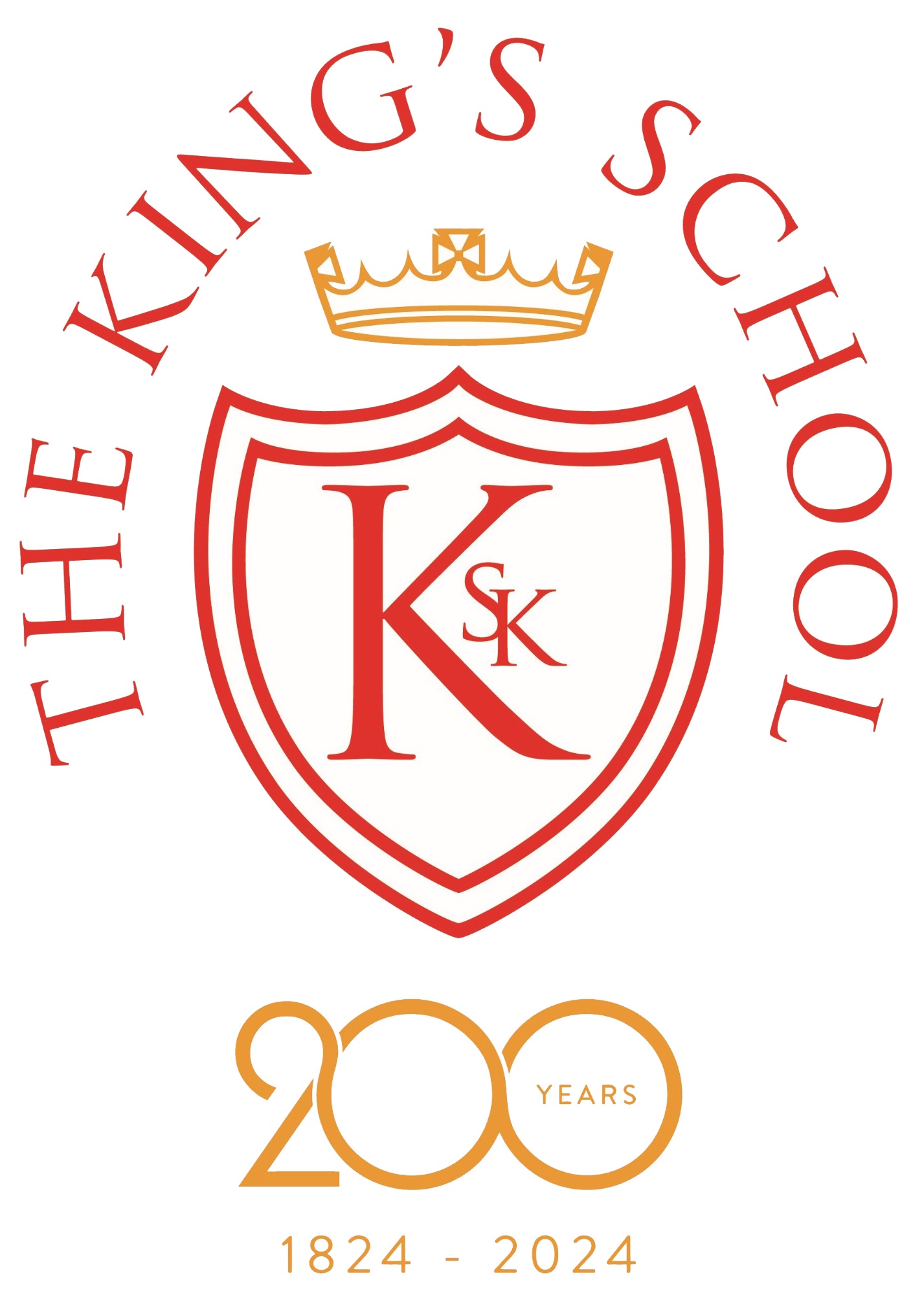British Values

The Department for Education states that all schools should promote fundamental British values. The definition of these British values is taken from the Home Office’s Prevent Strategy and are defined as:
- Democracy: Respect for democracy and support or participation in the democratic process.
- The rule of law: Respect for the basis on which the law is made and applies in England.
- Individual liberty: Support for equality of opportunity for all.
- Mutual respect and tolerance of those with different faiths and beliefs: Respect for and tolerance of different faiths and religions and other beliefs.
At The King’s School we value and reflect British values in all that we do. We aim to nurture our children on their journey through life so they can grow into safe, caring, democratic, responsible and tolerant adults who make a positive difference to British society and to the world. We encourage our children to be creative, unique, open-minded and independent individuals, respectful of themselves and of others in our school, our local community and the wider world. We recognise the diversity of backgrounds of all pupils, families and wider school community and encourage our pupils to live and learn through our school values of love, compassion and respect.
In response to recommendations from the National Association of Head Teachers (NAHT) and the Association of School and College Leaders (ASCL), British values are not taught as individual lessons, but are embodied within the ethos and culture of our school and reflected within our School Mission Statement and Golden Rules, which are there for the benefit of everyone within our school community.
At the King’s school we actively promote British values in the following ways:
Democracy:
- Year 5 visit to the Houses of Parliament engaging in a workshop on the principles of democracy
- School council – children are encouraged to express their views and make a meaningful contribution to the running of the school on matters that directly involve pupils, for example:
- Selectin of new staff
- Discussing new and updated schol policies
- Rewards and sanctins
- The playgrund and learning environments
- Discussing the curriculum and learning certainties
- Supprting new pupils
- Children have the opportunity to have their voices heard through pupil questionnaires, pupil surveys and curriculum focus groups/ deep dives
- Children vote for: school council representatives, librarians, prayer ambassadors, house captains (year 6), pupil parliament representatives and junior safety officers (year 5).
- Children in EYFS use pegs to vote for things such as their favourite book.
- Junior Safety Officers aim to increase safety awareness and encourage their peers to take responsibility for keeping each other safe. This is shared during assemblies.
- Year 6 visit the Museum of Richmond and the National Archives when studying WWII.
- Year 6 participate in the Junior Citizenship programme providing an opportunity to learn with local police officers and firefighters in how to deal with different types of dangers.
- The principle of democracy is explored in the curriculum as well as during assemblies and through visits from our local MP.
- Faith and Prayer Ambassadors (FPAs) lead Collective Worship on issues that they want to address
- Courageous advocacy (agents of change) – homelessness appeal led by the FPAs.
The rule of law:
- The ‘Golden rules’ and ‘Golden playground rules’ are integral to the learning ethos and are regularly promoted through assemblies and PSHCE
- The Behaviour policy has clear rewards and sanctions, supporting children to understand choices and consequences and take responsibility for their actions.
- The Jigsaw programme is followed in PSHCE
- Our PSHCE curriculum also covers: creating class charters, learning about communities and caring for our environment, learning about cooperation, political systems of democracy and dictatorship, elections and voting, government and parliament, local government and charities
- Members of the Magistrates court visit year 6: Children act out a mock court case and learn how different courts operate
- Pupils are encouraged to respect the law and enjoy visits from authorities such as the Police, Fire and Ambulance services
- The Behaviour and Anti-Bullying policies set out a zero tolerance of any form of aggression, abuse or violence, which extends to pupils, staff, parents and carers
- Peer mediators in the playground help to resolve conflicts and encourage the understanding and following of school rules
- Sports leaders promote active playtimes and encourage and promote positive playground behaviour
- E-safety is taught as part of the Computing curriculum and regularly explored through assemblies. Online Safety Day is featured yearly.
Individual liberty:
- Pupils are actively encouraged, and given the freedom to make choices, knowing that they are in a safe and supportive environment
- Pupils can attend a social group with a teaching assistant trained in emotional literacy
- Pupils are supported to develop their self-knowledge, self-esteem and self-confidence through our Jigsaw programme, Learning Certainties and classroom circle times
- Through our Jigsaw programme, and St. John’s Ambulance, children learn about basic First Aid and how to deal with an emergency.
- Our behaviour policy encourages pupils to take responsibility for their behaviour, discusses fairness and reinforces the importance of making the right choices
- Children refer to our school values of love, compassion and respect in their daily school life at throughout their education at King’s
- A clear Anti-Bullying Policy is in place and a strong anti-bullying culture is embedded in the school through assemblies, PSHCE, circle time, workshops and theatre performances. Any form of bullying is challenged and addressed and all incidents are recorded
- Pupils are encouraged to know, understand and exercise their rights and personal freedoms and are advised how to exercise these safely, for example through our e-safety teaching and PSHCE lessons.
- Pupils have key roles and responsibilities in school e.g. Eco Monitors, Librarians, Prayer Ambassadors, Sports Leaders, Guardians, Wet Play Monitors, Lunchtime Helpers, etc.
Mutual respect and tolerance of those with different faiths and beliefs:
- Respect is one of the core values of our school and pupils know and understand that it is expected that respect is shown to everyone. Pupils are helped to understand and respect their own and other cultures and ways of life.
- Our School mission statement of Living and learning through the values of love, compassion and respect is embedded in the King’s Christian Ethos.
- The PE curriculum embodies the school values of Love, Compassion and Respect and the Olympic and Paralympic values of Respect and Equality
- Multi-lingual books are available in the school library
- Different cultures/religions are celebrated in assemblies and form part of the RE curriculum
- We celebrate Global Christian Community Week where children learn about the different Anglican communities around the world, as well as Spirituality and Art Week.
- Visits are promoted to different places of worship linked to children’s learning in RE. e.g. synagogue, mosque
- We have strong links with St Anne’s and St Luke’s churches and are supported by the vicars who lead weekly collective worship and guide on pastoral issues
- Leaders of other faiths hold workshops and lead Collective Worship
- We celebrate global and national events, such as the Queen’s Platinum Jubilee and the King’s Coronation
- Year 4 take part in a Mayan workshop, immersing themselves into the culture
- Parents of other faiths come to talk to the children about their faiths and the associated traditions
- Through the PSHCE and RE curriculums pupils are encouraged to discuss and respect differences between people, such as differences of faith, ethnicity, disability, gender or sexuality and differences of family situations. Staff and pupils are encouraged to challenge prejudicial or discriminatory behaviour
- Through our PSHCE curriculum, Jigsaw, children are taught to and encouraged to develop critical thinking skills
- The school supports a number of local, national and international charities (e.g. SPEAR, REACT, Children in Need and Comic Relief), these charities are voted for though School and Class Council and children are encouraged to reflect on the needs of others and actively involve themselves in fundraising
- Children in year 6 regularly visit people at Abbeyfield residential home, join in activities at Strathmore School for children with special education needs and have spent time at a local hospice.
- Multi-faith services included in our Collective Worship cycle, for example International Mother Tongue Day, World Baha’i Day, International Faith Week, World Day for Cultural Diversity
Our rich and varied curriculum offers children opportunities to reflect on our core values and on British values and is an important part of the Aiming High Curriculum at The King’s School.
